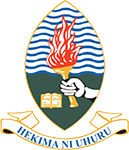This course is designed to introduce participants to the Learning Management System (LMS), specifically Moodle LMS, which is powerful, versatile, and widely used in education and training. The course will provide a foundational understanding of LMS Moodle’s features, demonstrate how to navigate the platform effectively, and offer hands-on practice in managing courses, creating content, and tracking learner progress.
- Instructor: NIAGARA NIAGARA
- Instructor: Bilal Athumani
- Instructor: Godfrey Nkwera
This course is aimed to familiarize students on the use of Ms. Excel in Petroleum Engineering.
Outcome:
At the end of the course students should be able to use excel to perform different mathematical computations on petroleum engineering data.
Marine plants and their close relatives (cyanobacteria and algae) as major primary producers in marine ecosystems play key roles in facilitating ecosystem outputs of goods (fisheries and aquaculture) and services (coastal protection, clean water, reducing atmospheric CO2). The course aims to provide students with an understanding of basic plant physiological processes (photosynthesis, nutrient uptake and metabolism, reproduction, aging, and programmed cell death); the effect of the dynamic marine environmental variables, and their cellular/organism level response to biotic (completion, epiphytism, pathogens and herbivores) and abiotic (nutrient limitation, salinity, cold, heat, excess light, high CO2) stresses. Such knowledge is crucial for our continued reliance on ocean goods and services and plant domestication.
Course Expected Learning Outcomes:
After successful completion of this course, the students are expected to be able to:
1. Explain basic plant physiological processes and the role of growth regulators in plants
2. Analyse the effect of marine environmental variables on basic plant processes
3. Explain plant response to biotic and abiotic stresses
4. Apply knowledge of plant physiology in their domestication and ecology.
This course examines the relationships between health disease, poverty, and development. Students will discuss promoting pro-poor health policies and healthcare investment strategies to achieve poverty reduction and economic growth.
